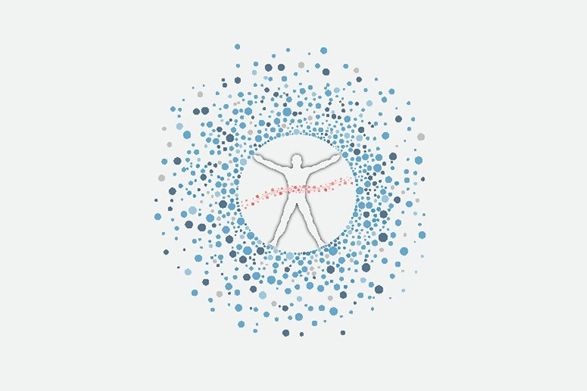
(Vienna, 31 January 2022) Humans are exposed to toxins and environmental factors that can significantly affect their health. The goal of exposome research is to comprehensively describe these non-genetic, external impacts, such as environmental contaminants, food ingredients, drugs and plasticisers, as well as their combined toxic effects. With this in mind, the "Exposome Austria Research Infrastructure", coordinated by the Faculty of Chemistry at the University of Vienna in partnership with the Medical Universities of Vienna and Innsbruck and the Federal Environment Agency, was launched at the start of the year.
"Our current assumption is that a person is exposed to at least 10,000 to 100,000 toxins and contaminants over the course of his or her life, these primarily being incorporated via food, but also via water and air," says Exposome Austria coordinator Benedikt Warth from the Institute of Food Chemistry and Toxicology at the University of Vienna.
New datasets and analytical approaches
Thanks to high-resolution analytical methods such as mass spectrometry and new bioinformatics methods for handling Big Data, for the first time it is now possible to comprehensively survey exposure to environmental substances and systematically investigate interactions. Exposome Austria will collect new data on toxin exposure in previously unknown dimensions and develop new approaches for their evaluation. In particular, researchers will systematically investigate harmful substances to which children are exposed in the womb or during their first years of life and the possible effects in later life.
"The newly developed technologies can also identify previously unknown cocktail effects, which can occur when various foreign substances such as drugs or food contaminants come together in the body," says Benedikt Warth. Examples of such "cocktail effects" include the industrial chemical bisphenol A and the plant oestrogen genistein, both of which can interact with the human hormone system, as well as with cancer treatments.
"But our vision goes beyond exploring links between exposure and health risks," says Warth: "In the long term, we want to help minimise exposure to the truly critical impacts, thereby supporting personalised prevention and the avoidance of chronic disease."
The researchers involved at MedUni Vienna, Eva Schernhammer (Division of Epidemiology), Claudia Gundacker (Institute of Medical Genetics), and Lukas Wisgrill (Department of Pediatrics and Adolescent Medicine, Division of Neonatalogy, Intensive Care Medicine and Neuropediatrics), are contributing their expertise in environmental epidemiology and neonatal medicine, which is necessary for the planned establishment of an Austrian birth cohort including biobank.
Exposome Austria as part of an EU project
Exposome Austria is the national research consortium of EIRENE, a large-scale European research infrastructure, and in Austria includes researchers from the University of Vienna, the Medical University of Vienna, Medical University of Innsbruck as well as the Federal Environment Agency and other strategic alliances (BBMRI.at, eLTER, ISOtopic Solutions). The ESFRI infrastructure EIRENE (Environmental Exposure Assessment in Europe) involves a total of around 50 research institutions from 17 countries. EIRENE is one of eleven infrastructures that the European Strategy Forum on Research Infrastructures included in its ESFRI Roadmap 2021.
The official launch event of Exposome Austria is scheduled to take place at the University of Vienna on 31 May 2022.